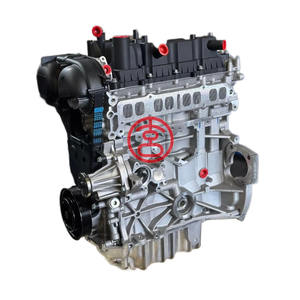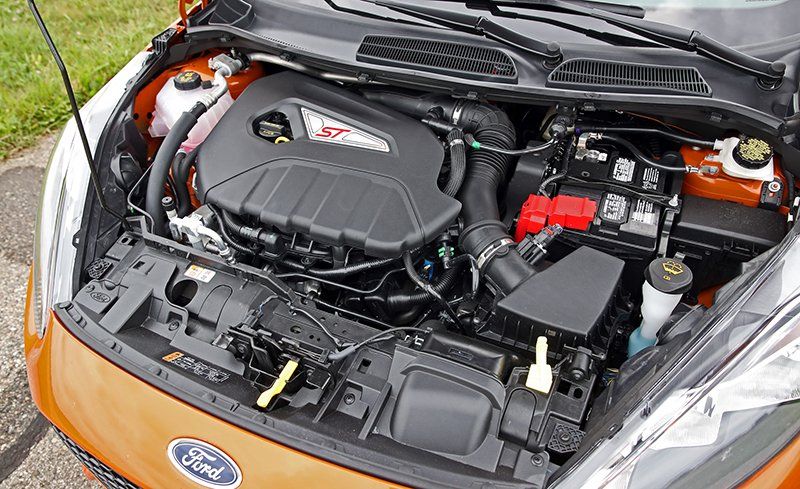How to Diagnose Ford Fiesta Engine Issues and Prevent Future Problems
How to Diagnose Ford Fiesta Engine Issues and Prevent Future Problems
Blog Article
The Future of Engines: Technologies Driving Lasting Power Solutions
As the vehicle industry navigates the essential change towards sustainability, the future of engines is progressively defined by groundbreaking innovations. Electric engine advancements, alongside appealing growths in hydrogen gas cells and biofuels, are improving the landscape of power remedies.
Electric Engine Developments
The development of electric engine advancements represents a pivotal shift in the automobile and aerospace markets, driven by the urgent need for sustainable alternatives to nonrenewable fuel sources. This change is characterized by considerable advancements in battery innovation, power electronics, and electrical motor design, which collectively enhance the effectiveness and efficiency of electrical engines.
Recent developments have resulted in the creation of lighter, a lot more energy-dense batteries, such as lithium-silicon and solid-state batteries, which guarantee longer arrays and much shorter charging times. Additionally, enhancements in electrical motor effectiveness, such as making use of permanent magnets and progressed cooling systems, enable electrical engines to operate successfully under varying problems. These improvements not only improve vehicle performance however likewise contribute to a decrease in general energy usage.
Moreover, the assimilation of innovative software formulas has optimized power management in electric cars, permitting for regenerative stopping and predictive charging techniques. As makers increasingly embrace electric propulsion, the aerospace and auto fields are witnessing a standard shift towards greener innovations. This advancement not just meets regulative needs but additionally lines up with consumer choices for eco-friendly transport services, strengthening electrical engines as a keystone of future lasting mobility.
Advancements in Biofuels
As the aerospace and auto markets significantly prioritize sustainable energy resources, innovations in biofuels emerge as a complementary option to electrical engines. Biofuels, originated from natural materials such as crops, waste, and algae, offer an ingenious method for lowering greenhouse gas exhausts and reliance on nonrenewable fuel sources.
Current research study has concentrated on enhancing the performance and sustainability of biofuel production. Second-generation biofuels use non-food feedstocks, decreasing competitors with food supply and reducing ecological effect. Additionally, advancements in artificial biology have actually allowed the design of microbes to produce biofuels better, resulting in higher yields and reduced production costs.
Additionally, the growth of drop-in biofuels permits smooth integration right into existing facilities, making it possible for a smoother transition for sectors typically reliant on fossil fuels. ford fiesta engine. These fuels can be made use of in current engines without adjustments, promoting their adoption throughout various markets
Investments in biofuel innovation, together with supportive policies, are necessary to drive advancement and scalability. As the global area looks for to fight climate adjustment, biofuels use a practical, prompt service that aligns with the overarching goal of sustainability in transport and aeronautics.
Hydrogen Gas Cell Innovation
An expanding number of scientists and companies are checking out hydrogen fuel cell innovation as a practical option to conventional power resources in transportation and power systems. This modern technology transforms chemical power from hydrogen into electrical energy with an electrochemical reaction, with water as the only result, making it an ecologically friendly choice.
The core of hydrogen fuel cells is the gas cell stack, where hydrogen molecules are split into protons and electrons. The flow of electrons generates electrical power, while protons relocate through a membrane to integrate with oxygen from the air, forming water. This procedure causes high efficiency and low exhausts, placing hydrogen gas cells as a vital gamer in the change to lasting power.
Significant developments have been made in enhancing the durability and efficiency of fuel cells, together with lowering expenses with cutting-edge manufacturing techniques. Furthermore, the growth of hydrogen manufacturing approaches, such as electrolysis powered by renewable resource sources, enhances the sustainability of the total system. As facilities for hydrogen refueling expands and manufacturing techniques become much more efficient, hydrogen gas cell innovation holds wonderful promise for decarbonizing different fields, consisting of durable transport and stationary power generation.
Hybrid Systems and Their Influence
Crossbreed systems stand for a considerable evolution in lasting engine technology, merging traditional internal burning engines with electric propulsion to maximize energy performance and decrease exhausts (ford fiesta engine). This dual technique permits lorries to make use of both source of power, allowing higher versatility in energy usage and reducing reliance on fossil fuels

In enhancement to environmental benefits, crossbreed systems offer customers a feasible change in the direction of totally electrical vehicles. They minimize variety stress and my response anxiety by integrating the convenience of gasoline with the advantages of electric propulsion, making them an attractive alternative for a bigger target market.
The Function of AI in Engine Design
Leveraging advanced algorithms and artificial intelligence methods, the automotive market is increasingly incorporating expert system (AI) right into engine style procedures. AI enhances the effectiveness and effectiveness of style by evaluating vast datasets to identify optimal configurations and performance specifications. This capability permits designers to simulate different operating conditions and forecast engine habits under numerous circumstances, considerably reducing the time and cost connected with conventional prototyping methods.
Furthermore, AI promotes the growth of sophisticated products and combustion processes customized for sustainability. By optimizing gas performance and lessening emissions, AI-driven layouts line up with international campaigns aimed at reducing the carbon footprint of automobile engines. Device learning algorithms can likewise anticipate upkeep requirements, causing improved reliability and durability of engine parts.
Additionally, AI contributes in the combination of electrification technologies, such as hybrid systems, where it can enhance battery management and energy healing procedures. As the sector relocates in find out this here the direction of even more lasting power services, the function of AI in engine style ends up being significantly crucial, driving development and improving the efficiency of future engines. Eventually, the partnership in between AI and engine design advertises a new period of smarter, cleaner, and extra reliable vehicle technologies.

Verdict
In verdict, the future of engines is being formed by a convergence of innovative modern technologies that prioritize sustainability. Electric engine developments, biofuel growths, hydrogen gas cells, and hybrid systems jointly add to a substantial reduction in exhausts and environmental influence.
Electric engine developments, along with encouraging developments in hydrogen gas cells and biofuels, are improving the landscape of power options. Furthermore, renovations in electric motor performance, such as the use of long-term magnets and progressed cooling systems, allow electric engines to run properly under differing conditions. By optimizing gas efficiency and minimizing exhausts, AI-driven styles line up with worldwide campaigns intended at decreasing the carbon impact of vehicle engines. As the industry relocates towards more sustainable power options, the function of AI in engine style ends up being increasingly important, driving advancement and enhancing the performance of future engines. Electric engine innovations, biofuel advancements, hydrogen gas cells, and hybrid systems collectively contribute to a considerable decrease in exhausts and ecological effect.
Report this page